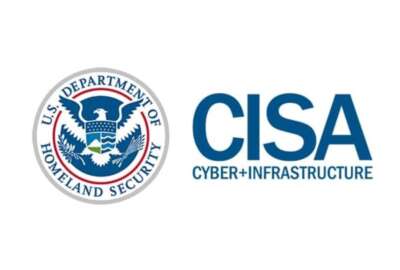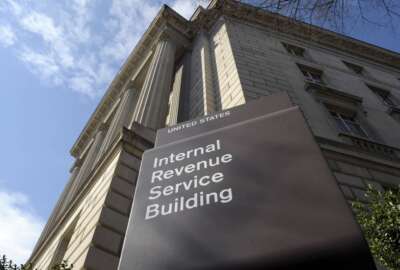An unlikely agency joins the fight against opioid overdoses
In today's Federal Newscast, the Postal Service is joining the Biden administration’s efforts to combat opioid overdoses.
- The Postal Service is joining the Biden administration’s efforts to combat opioid overdoses. USPS will train employees in 10 locations across the country on how to administer naloxone, an overdose-reversal medication. USPS will also keep these medications stocked in first aid kits at facilities in those target areas. USPS expects these measures will help keep its employees and customers safe. More than 80,000 people die from opioid overdoes each year. (USPS joins White House, others to combat opioid overdoses - U.S. Postal Service )
- The White House is directing agencies to follow a trusted standard when it comes to sharing cyber threat data. The Office of the National Cyber Director, in new guidance issued yesterday, is backing the federal use of “Traffic Light Protocol (TLP)." It’s a system used by the security research community to mark how widely information should be shared. Many agencies already use TLP. In a new blog post, National Cyber Director Harry Coker writes that government-wide use of the protocol should help foster more trust between government, industry and the broader cybersecurity community. (Doubling down on trusted partnerships: our commitment to researchers - Office of the National Cyber Director )
- White House officials will soon get an update from agencies on the steps they’re taking to modernize their cyber defenses. The White House has directed agencies to send in updated zero trust implementation plans by Nov. 7. They’ll be the first such plans agencies have pulled together since the federal zero trust strategy was first issued in January 2022. The White House wants details from agencies on how they’re specifically protecting their high value assets. The zero trust push has resulted in many agencies upgrading their identity-based cyber protections, including through multifactor authentication. But federal cyber leaders say agencies will need to start testing out whether their zero trust approach can limit the damage caused by hackers. (Agencies prep for next phase of ‘zero trust’ cyber upgrades - Federal News Network)
- The Council on Federal Financial Assistance (COFFA) is celebrating its one-year anniversary by building on its current momentum. COFFA is helping to develop data standards to improve the quality and interoperability of the federal financial award information. The working group, which includes 22 CFO Act agencies and almost 50 overall agencies across 1,500 grant programs, is creating data standards that will make the federal program inventory a better tool for agencies and citizens. COFFA also is working with the General Services Administration to bring grants and financial assistance into the SAM.gov portal. This working group has revamped the charter and the memorandum of understanding with GSA’s Integrated Acquisition Environment. (Marking the achievements of the Council on Federal Financial Assistance on its first anniversary - Office of Management and Budget)
- Two agencies are receiving extra funding to help accelerate modernization and cybersecurity projects. The Social Security Administration received money from the Technology Modernization Fund for three projects. SSA will use the extra money to digitize forms, to modernize beneficiary notifications and to use artificial intelligence to support disability claim processing. The TMF Board also awarded money to the Department of Housing and Urban Development. It will use $19.8 million to expand its Enterprise Identity, Credential and Access Management (EICAM) pilot. The TMF Board now has invested more than $1 billion in 67 projects across 34 agencies with 77% of those investments coming from American Rescue Plan (ARP) funding.(TMF announces investments upgrading customer experiences in housing and Social Security services - General Services Administration)
- The IRS made an additional 18,000 hires during the last fiscal year. Now leaders are looking to build out resources to help develop the new recruits’ skills. The agency is currently working on creating an online “IRS university.” The learning program would be free to IRS workers. The goal is to build online training opportunities, map employees’ competencies, and create individual development plans. The “IRS university” would eventually include four main academies: leadership and business, tax compliance, taxpayer services and IT.(IRS University for employees - Internal Revenue Service)
- The Social Security Administration is making progress on some of its customer experience metrics. The average wait time for SSA’s 1-800 phone line over the past 30 days is about 11 minutes. That’s a fraction of the 42-minute average wait time it saw last November. SSA is also closing disability cases in its backlog at a faster rate than new cases coming into the agency. SSA Commissioner Martin O’Malley said the agency is providing services to a record number of Americans, despite a 50-year low in staffing. “When President Biden asked me to come to Social Security, it was not because everything was going great. It was because we had been pushed into a customer service crisis by what was effectively 10 years of staffing reductions imposed by Congress.”(SSA gets $30M from TMF for IT upgrades key to better customer service - Federal News Network)
- Several thousand participants in the Thrift Savings Plan may be on track to miss out on hundreds of dollars. Based on their current contributions, a small number of TSP participants could reach the IRS' annual contribution limit before the end of the year. If that happens, they would stop receiving the full 5% match from the government for the rest of 2024. It’s typically very few participants who run into that issue. The Federal Retirement Thrift Investment Board has been trying to reach out directly to the affected TSP participants. The board is recommending they adjust their contributions to ensure they receive that 5% match in every pay period.(TSP participants contributing too much, too soon could miss out on benefits - Federal News Network)
Copyright © 2025 Federal News Network. All rights reserved. This website is not intended for users located within the European Economic Area.
Eric White
Eric White is news anchor and Federal Drive producer at Federal News Network.
Follow @FEDERALNEWSCAST






